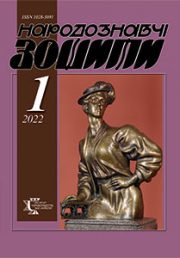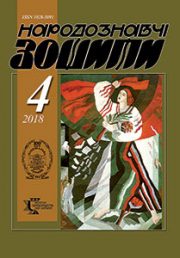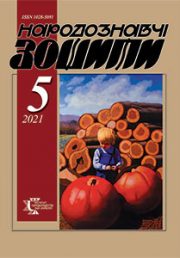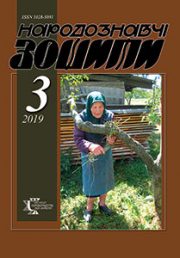The Ethnology Notebooks. 2017, 2 (134), 448—459
UDK 791.62+343.6
DOI https://doi.org/10.15407/nz2017.02.448
PUBLIC EXECUTIONS IN MEDIEVAL EUROPE AS A FORM OF A THEATRICAL EVENT
Yudov Mykola, associate professor
at the KNUKiM,
Ye. Konovaltsia Street 36, 01601, Kyiv, Ukraine.
Contacts: knukim@ukr.net
Yudova-Romanova Kateryna, Senior teacher
at the KNUKiM,
Ye. Konovaltsia Street 36, 01601, Kyiv, Ukraine.
Contacts: E-mail: knukim@ukr.net
Abstract. This article aims to study the public medieval executions in Europe, as a form of a theatrical event, which has a defined scenario, actors and audience. Author analyzes social and cultural function of the execution, classifies their main types, from the point of view of their scenario and directing. The theatrical and visual aspects are also being an important factor.
Keywords: medieval public execution, theatrical event.
Received 03.03.2017
REFERENCES
Bekkarіa, C. & Soboleva I. (perev.). (1878). O prestuplenijah i nakazanijah. Radom: Tipolitografija I.S. Trzhebinskogo [in Russian].
Bibliia abo Knyhy sviatoho pys’ma Staroho i Novoho Zapovitu: Yevanheliie vid sv. Ivana. (Bud’iake vydannia) [in Ukrainian].
Bibliia abo Knyhy sviatoho pys’ma Staroho i Novoho Zapovitu: Knyhy Staroho Zapovitu: P’iatyknyzhzhia Mojseieve: Tretia knyha Mojseieva: Vykhid [in Ukrainian].
Vol’ter. (1954). Filosofskie povesti. Moskva: Hudozhestvennaja literature [in Russian].
Gurevich, A.Ja. (1984). Kategorii srednevekovoj kul’tury. Moskva: Iskusstvo [in Russian].
Gurevich, A.Ja. (1990). Srednevekovyj mir: Kul’tura bezmolstvujushego bol’shinstva. Moskva: Iskusstvo [in Russian].
Dekabristy. (2007). In Illjustrirovannyj jenciklopedicheskij slovar’ F. Brokgauza i I. Jefrona. Moskva: Jeksimo [in Russian].
Zhanna D’Ark. (2007). In Illjustrirovannyj jenciklopedicheskij slovar’ F. Brokgauza i I. Jefrona. Moskva: Jeksimo [in Russian].
Mel’nychuk, O.S. (Ed.). (1974). Inkvizytsiia. In Slovnyk inshomovnykh sliv. Kyiv: HR URE AN URSR [in Ukrainian].
Kistjakovskij, A.F. Bezsmertnyj (2000). Issledovanie smertnoj kazni. Tula: Avtograf [in Russian].
Le Goff, Zh. &, Bezsmertnyj Ju.L. (Ed.). (1992). Civilizacija srednevekovogo Zapada. Moskva: Progress; ProgressAkademija [in Russian].
Seredn’ovichchia. (1983). In URE. (Vol. 10, p. 133). Kyiv, 1983 [in Ukrainian].
Smertnaia kazn’. (2007). In Ylliustryrovannyj entsyklopedycheskyj slovar’ F. Brokhauza y Y. Efrona. Moskva: Eksymo [in Russian].
Hjojzinga, J. & Sil’vestrova, D.V. (sost. i per. s niderlandskogo). (2004). Osen’ Srednevekov’ja: Issledovanija form zhiznennogo uklada i form myshlenija v XІV i XV vekah vo Francii i Niderlandah. Moskva: Ajrispress [in Russian].
Shishov, O.F. (1989). Smertnaja kazn’ v istorii Rossii. In S.G. Kelina & O.F. Shishov (Ed.), Smertnaja kazn’: za i protiv (sbornik). Moskva: Juridicheskaja literature [in Russian].
V Irake kazneny 36 islamistov za uchastie v massovom ubijstve. Novosti [UNIAN]. Retrieved from: www.unian.net/world/1480466virakekaznenyi36islamistovzauchastievmassovomubiystve.
Smertnaja kazn’. Jenciklopedicheskij Slovar’ F.A. Brokgauza i I.A. Jefrona. Retrieved from: http://www.vehi.net/brokgauz/.
U Saudivs’kij Aravii za vbyvstvo stratyly pryntsa. Novyny [UNIAN]. Retrieved from: www.unian.ua/world/1578382usaudivskiyaravijizavbivstvostratiliprintsa.html







